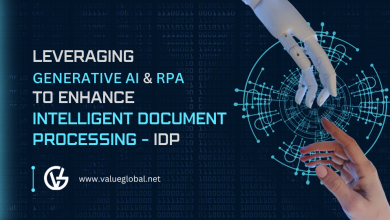The Future of Trusted Data Management: Striking a Balance between AI and Human Collaboration

In today’s fast-paced business landscape, data is the backbone of every strategic decision, every process optimization, and every growth initiative. The quality, reliability, and timeliness of data are what enable organizations to operate efficiently, reduce risk, and seize opportunities in real time. In this context, the rise of artificial intelligence (AI) has revolutionized how we handle vast volumes of data—yet AI alone cannot be the answer to every data challenge.
The true value of trusted data—whether business partner data or location data—comes not just from its sheer accuracy, but from its transparency, its ethical collection, and the human collaboration that ensures its integrity. While AI can clean, analyze, and process data with incredible speed and efficiency, the collaborative role of humans in maintaining and validating that data remains irreplaceable.
In this blog, we’ll explore the interplay between AI and human collaboration in managing both business partner data and location data. The future of data management is not just about leveraging cutting-edge technology but also about building communities and standards that ensure data is not only accurate but trusted. Collaborative platforms like CDQ Suite for Business Partners are at the forefront of this movement, enabling organizations to improve the quality and trustworthiness of their data through shared efforts and resources.
Trusted business partner data: building the foundation for AI-driven success
Trusted business partner data is not just a static resource—it’s a dynamic asset that evolves alongside an organization’s needs and market conditions. High-quality, reliable master data about customers, vendors, and suppliers forms the foundation for strategic decision-making, operational efficiency, and risk management. But where does this trust in business partner data come from, and why is it so critical?
Business partner data can originate from various sources:
– Open data: This includes public databases such as government registers, national postal services, and trade registers, which are often perceived as highly trustworthy due to their regulatory oversight. Open data is critical for verifying basic information like official company names and addresses. For instance, verifying vendor addresses through postal services can prevent costly errors in procurement or supply chain management.
– Paid data: Specialist providers, such as Dun & Bradstreet or Bureau van Dijk, offer premium datasets that provide deeper insights, such as financial health or legal histories of potential partners. While paid data is often highly detailed and up to date, it comes with varying levels of trust depending on the provider’s reputation and the user’s experience with these datasets.
– Shared data: Communities and networks, such as the CDQ Data Sharing community or SAP Business Network, offer platforms for exchanging business partner information among trusted members. While the collaborative nature of shared data creates value, trust in these sources can vary based on the platform’s governance and the quality of data contributed by members.
– Web data: Online data sources—such as official websites, social media, and news sites—offer a wealth of real-time information, but this data is more difficult to validate due to the dynamic and unregulated nature of the web. Cross-referencing from multiple web sources is often necessary to ensure accuracy.
CDQ, as a global leader in collaborative data management, has been pioneering efforts to ensure that shared business partner data meets the highest standards of quality and trust. Their data quality initiatives and data sharing platforms enable organizations to exchange business-critical information with confidence, knowing it has been validated and standardized across the community.
AI’s role in processing this business partner data is undeniably powerful. By leveraging machine learning algorithms, organizations can harness these datasets to identify patterns, predict trends, and derive actionable insights. For example, AI can help streamline procurement strategies by analyzing vendor performance across different regions. It can also help in identifying hidden opportunities in market segmentation or optimizing customer targeting in marketing campaigns.
Yet, AI can only work with the data it is given. The trustworthiness of business partner data depends on human oversight—on the ethical sourcing of information, adherence to industry standards, and cross-checking against verified sources. Moreover, AI cannot evaluate whether the data complies with regulatory or ethical standards, such as data privacy laws or embargo regulations. For instance, screening business partners against sanction lists requires not only accurate data but also a deep understanding of legal compliance—a distinctly human responsibility.
Without trusted, high-quality data as its foundation, even the most advanced AI systems will produce unreliable or skewed results. Therefore, the role of humans in validating and verifying this data before it enters the AI pipeline is paramount. As businesses become more data-driven, the balance between AI automation and human collaboration will define the success of data management strategies. Here, CDQ’s expertise in data governance and quality management provides a valuable framework for organizations aiming to ensure the reliability of their business partner data.
Location data management: navigating the unique challenges
While business partner data has a more defined structure with established sources, location data presents its own set of challenges. In many ways, location data is the hidden backbone of operational logistics, supply chain efficiency, and regulatory compliance. However, managing this data is far more complex due to the lack of universally trusted sources or standards.
Consider this: while public registers exist to verify business partner data, no such authority governs location data. A warehouse, for instance, might be identified differently within various divisions of a company—sometimes as a virtual cost center, sometimes as a physical address, or even as a specific delivery ramp. These discrepancies create data silos, where different departments use fragmented and inconsistent information, leading to operational inefficiencies and costly mistakes.
The challenges of location data
– Untrusted data: Since no official registers exist for verifying locations, the only reliable source of truth is the location owner. But even within an organization, internal misalignments or outdated records can lead to inaccuracies.
– Silos: Companies often store location data in system-specific formats, creating silos that make data sharing difficult. Without a common model, aligning data between departments or business partners becomes a cumbersome, labor-intensive process.
– Outdated information: Unlike business partner data, which might be updated regularly through external or shared databases, location data is often maintained in isolated systems with little real-time updating. This results in stale information, which can lead to missed deliveries, inefficient logistics routes, and even compliance violations when certifications are not current.
The impact of incorrect location data cannot be overstated. A wrong address can lead to missed deliveries, delayed shipments, or even regulatory issues if locations are not certified according to compliance standards. AI can certainly help clean up outdated records or optimize delivery routes, but it cannot automatically verify the correctness of the locations themselves. This requires human collaboration—a central effort to ensure all stakeholders are aligned on accurate, up-to-date information.
GLN Connect: Combining AI and Human Collaboration for Location Data
To address these challenges, platforms like GLN Connect have emerged, built on the global standards upheld by GS1. GLN Connect offers a central, easy-to-use platform that allows companies to manage location data collaboratively, standardizing information and receiving real-time updates from their partners. By combining human collaboration with AI-powered automation, GLN Connect helps companies overcome the inefficiencies of siloed systems.
For example, by maintaining a single source of truth for location data, companies can avoid costly errors and optimize their operations. GLN Connect allows businesses to:
– Automate data cleansing: AI-powered systems automatically update and standardize location data, reducing the manual burden of maintaining accuracy.
– Share data across networks: By fostering collaboration, companies can align on definitions, ensuring that all stakeholders are working with the same, trusted information.
– Make better decisions: Real-time data ensures that companies can optimize logistics, prevent compliance issues, and make informed decisions based on accurate location capabilities.
The importance of collaboration, as seen with platforms like GLN Connect and CDQ’s Data Sharing community, underscores how vital it is to combine technology with human oversight. By leveraging community-driven platforms, organizations can trust the data they share and receive, enhancing the overall quality of their data ecosystems.
Striking the right balance between AI and human collaboration
While AI continues to evolve and offer groundbreaking capabilities, it is not the ultimate solution for every challenge, especially when it comes to maintaining trusted data. AI excels at processing, analyzing, and optimizing data, but it cannot create trust where none exists. The accuracy, integrity, and compliance of data still depend heavily on human collaboration, validation, and ethical oversight.
The future of data management lies in finding the right balance. AI can enhance data-driven processes, but it must be paired with collaborative platforms that ensure data is both accurate and trusted. CDQ’s data quality framework, for example, combines technological innovation with community collaboration, ensuring that business partner data meets rigorous standards of trustworthiness.
Humans play a critical role in building and maintaining the ecosystems that foster data sharing, standardization, and alignment—tasks that AI alone cannot achieve.
Trust and collaboration in the age of AI
In an AI-driven world, the importance of trusted data cannot be overstated. Whether it’s business partner data or location data, having accurate, reliable information is what powers modern enterprises. Yet, as advanced as AI becomes, the human role in managing and maintaining that data remains fundamental. The future of trusted data management will depend on a delicate balance between leveraging AI’s strengths and nurturing human collaboration to ensure data integrity.
As businesses look to the future, platforms like GLN Connect and CDQ offer a glimpse into how collaborative ecosystems can transform data management. By bringing together technology and human expertise, companies can ensure their data remains an invaluable asset, driving success and growth in the digital era.
Ready to take the next step in trusted data management?
Whether it’s improving your business partner data or optimizing your location data strategy, join us in building a future of collaboration and AI-enhanced efficiency. Reach out for a demo of GLN Connect or explore CDQ solutions to strengthen your data management strategy.





